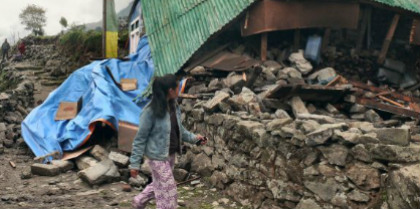
September 24, 2015, by Emma Lowry
Re-inventing our relationship with computers
University of Nottingham researchers are at the forefront of a new science that is finding ways in which computers can work intelligently in partnership with people. This could support the management of some of today’s most challenging situations, such as the aftermath of major disasters and smart energy systems.
The five-year ORCHID project has looked at how we work with computers: instead of issuing instructions to passive machines, we will increasingly work in partnership with agents, highly interconnected computational components that are able to act autonomously and intelligently, forming human-agent collectives (HACs).
Agents can be in sensors collecting and analysing information to give the ‘bigger picture’ of an emergency situation as it develops or in a smart meter monitoring the energy consumption of your home, recommending how you might adapt your usual routine to reduce both the cost of the energy that you consume and its carbon content.
On 22 September, at the Royal Academy of Engineering, in London, there was a showcase of world-leading ORCHID research from the fields of energy systems, citizen science and disaster response. The event will feature keynote talks from project leaders, presentations of case studies and demonstrations of technologies such as:
- Joulo – a home heating advice system that uses a low-cost temperature logger and online algorithms to provide feedback to households on how they are using their current heating system, along with autonomous intelligent home heating agents that can learn the householders’ comfort preferences in order to provide efficient comfortable heat control.
- AtomicORCHID – a mobile mixed-reality game in which first responders work together with a response headquarters to rescue as many casualties as possible. This game has allowed researchers to study team coordination and understand how human responders can be supported by computational agents that assist the planning and execution of the rescue mission, including the coordination of multi-UAV deployments.
The £10m funded project (£5m from EPSRC with the rest from matched support from project partners) has brought together around 60 researchers from the Universities of Nottingham, Oxford and Southampton, together with industrial partners at BAE Systems, Secure Meters UK Ltd, Rescue Global and the Australian Centre of Field Robotics.
ORCHID lead for Nottingham is Professor Tom Rodden, a computer scientist and co-director of the Mixed Reality Lab, which explores the potential of ubiquitous, mobile and interactive technologies to shape everyday life. “ORCHID is important because it links people to the intelligent systems we’ve built into the world around us,” says Professor Rodden.
No comments yet, fill out a comment to be the first

Leave a Reply